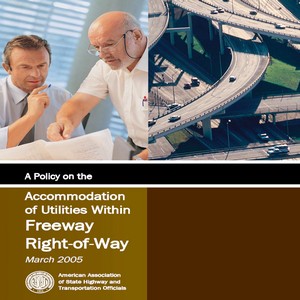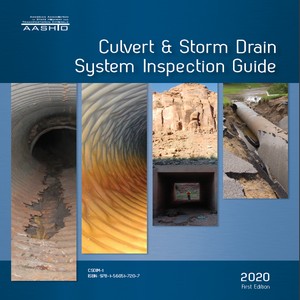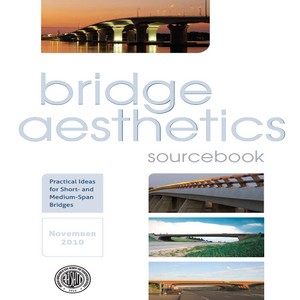AASHTO AU-5: A Policy on the Accommodation of Utilities Within Freeway Right-of-Way, 5th Edition
An official AASHTO policy on the extent and manner in which public utilities may cross or otherwise occupy the right-of-way of any portion of a freeway.
Freeways are highways with full control of access. They are intended to provide for high levels of safety and efficiency in the movement of large volumes of traffic at high speeds. With full control of access, preference is given to through traffic by providing access only at selected locations.
Control of access can be materially affected by the extent and manner in which utilities cross or
otherwise occupy the highway right-of-way. The state transportation agencies have various degrees
of authority to develop and maintain control of access and to regulate utilities, generally through their
authority to designate and to control the use of right-of-way acquired for public highways, including
those of all freeways.
Their authority depends upon Federal and state laws or regulations. These laws and regulations differ between states and may also be different within a state for highways using existing right-of-way and for highways on new location. A state may also have separate laws and regulations applicable only to highways on right-of-way subject to jurisdiction of a local government such as that of a large city.
A uniform policy is needed to establish the conditions under which public and private utilities may
be accommodated on the freeway right-of-way. It is the intent of this policy to establish procedures
whereby the individual state transportation agencies may uniformly administer the accommodation of utilities on freeways. While the policy has as its primary purpose improving and maintaining highway safety and operation, and insuring uniformity of utility treatment among the states, it recognizes the public interest in avoiding unnecessary and costly operation and relocation of public utilities.
It is not the intent of this policy to impose restrictions on the future installation of utility crossings that would obstruct the development of expanding areas adjacent to the freeways.
This policy applies to all highways with full control of access, regardless of system. Also, it has value
as a guide for all highways with partial control of access, especially if a highway corridor is a mixture
of segments with both full and partial control of access. For highways without control of access refer
to AASHTO’s A Guide for Accommodating Utilities within Highway Right-of-Way (1).
The policy can be applied in most states by existing authority. Those states in which laws will not
permit the application of this policy in its entirety should strive for uniformity through the enactment
of appropriate legislation. This policy makes no reference to reimbursement to utilities for the cost
of adjusting or installing facilities on freeway right-of-way. Reimbursement is subject to state
laws and policy.





Reviews
There are no reviews yet.